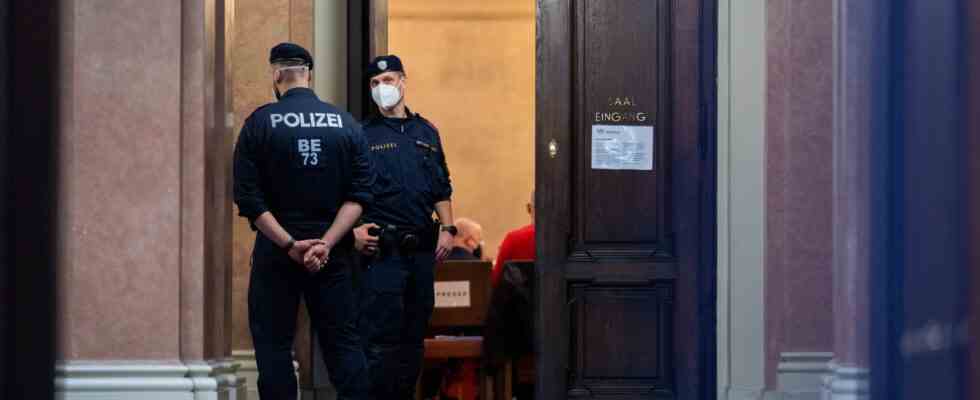Status: 10/18/2022 10:00 p.m
In November 2020, an IS supporter in Vienna killed four people and injured many others before police shot him dead. Six suspected helpers are now on trial. At the start of the process, there was a lot of criticism of the authorities.
Judicial officers with assault rifles, cameras are banned in the courtroom: the criminal trial against alleged helpers of the Vienna attacker began today with a large security presence and media interest. The public prosecutor did not comment publicly in advance, but in her opening speech she captured the core of the 117-page indictment as follows: It was about the question of how it could have come to this in the first place.
Defendants deny allegations
The accused men are said to have supported the assassin in the preparations for the attack. Several men are said to have helped him with the procurement of weapons and ammunition. Some of the accused are said to have encouraged the later assassin in his terrorist intentions. All deny the allegations. They also claim to have known nothing about the attack plans.
“The defendants are now required to have a better assessment than the Office for the Protection of the Constitution,” said Wolfgang Mekis, who is one of her defense attorneys. The authority was aware that the assassin was dangerous due to the prior conviction of the assassin. “Here, two very different standards are used,” criticized the lawyer.
warnings in advance
Mekis referred to the fact that the later assassin had already served a prison sentence. He had distributed propaganda material from the terrorist organization “Islamic State” (IS) and also tried to get to Syria. In addition, Slovakian security authorities had informed the Austrian Office for the Protection of the Constitution about an attempted illegal purchase of ammunition by the man in Bratislava.
However, this had no consequences. After the attack, the mistakes made by the security authorities were investigated by a commission of inquiry. “From my point of view, these are primarily failures in the areas of communication and coordination,” Nicolas Stockhammer summarized what went wrong. He researches terrorism and violent extremism at the University of Krems.
“Information was not passed on in a timely manner or not at all. Certain assessments were made very late, precisely with regard to the degree of danger.” The authorities might not have taken the information seriously enough.
“Victims Sent In Form War”
The failure of the security authorities in the run-up to the attack is disappointing for the victims and survivors of those killed, said lawyer Karl Newole, who represented 24 people in civil lawsuits. “In retrospect, you didn’t show any error culture. You bricked up, you didn’t give any information and that caused a lot of frustration.”
There was also no empathy. “While in France a president is with the victims after such an attack or is at the funeral, in Austria a victim is sent to the formal war,” Newole reprimanded. They would then receive very low compensation payments and would have to fight for a year to even receive the appropriate financial support.
Judgments in February at the earliest
Those affected would have no thoughts of revenge, said lawyer Newole. However, the victims expected the judiciary to deal properly with what had happened and whether the accused were involved or not. There are still 18 process days scheduled for this. Judgments are expected in February at the earliest. Prosecutors are asking for a murder conviction. Depending on the age of the accused, that would mean the maximum sentence, i.e. life imprisonment.
Two years after the attack in Vienna: the start of the trial against alleged helpers
Silke Hahne, ARD Vienna, 10/18/2022 8:51 p.m

